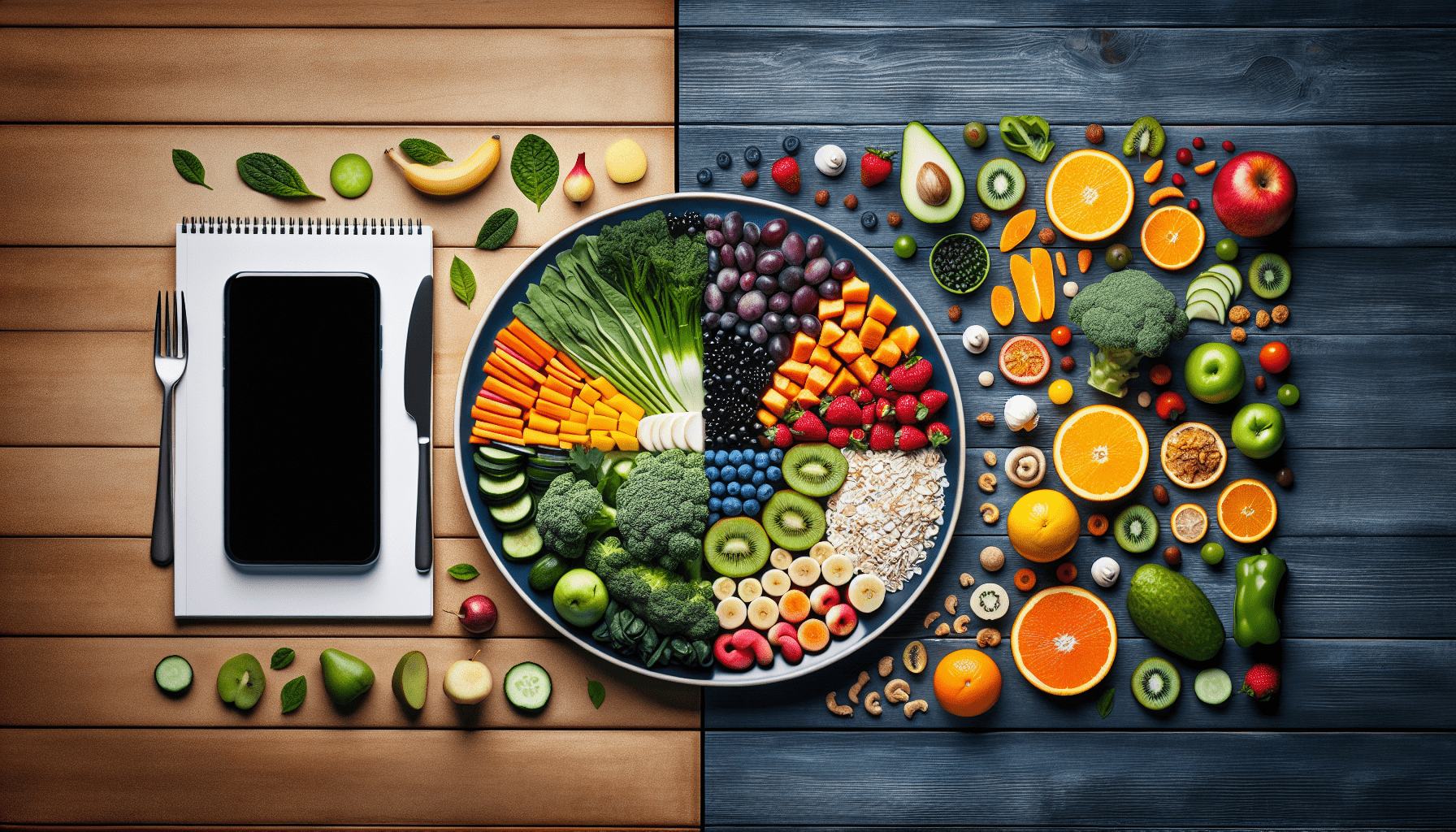Looking to shake up your eating habits? The mono diet might just be the answer. This article explores the pros and cons of this trendy diet that focuses on consuming only a single food group for extended periods. Whether you’re curious about its potential benefits or concerned about its drawbacks, we’ll provide you with a balanced view to help you make an informed decision about whether the mono diet is right for you.
What is a Mono Diet?
Definition
A mono diet, also known as a monotonous diet or single-food diet, is a restricted eating plan that involves consuming only one type of food or a limited range of foods for a certain period of time. This means that your daily intake will consist solely of one specific food item or a few selected foods. The duration of a mono diet can vary depending on personal preference, ranging from a few days to several weeks.
Example
A common example of a mono diet is the banana diet, in which individuals restrict their food intake to solely bananas for a specified period. They may eat as many bananas as they like throughout the day and can include them in various forms like smoothies, raw, or cooked. This mono diet claims to promote weight loss and detoxification, as well as provide a quick energy boost.
Pros of a Mono Diet
Weight Loss
One of the primary reasons individuals may choose a mono diet is to facilitate weight loss. By restricting food choices and simplifying your diet, you naturally consume fewer calories overall. This calorie deficit can lead to weight loss over time, especially if the mono diet is followed consistently and combined with regular physical activity. However, it’s important to note that any weight loss achieved during a mono diet may primarily be due to water weight and muscle loss rather than fat loss.
Simplicity
Following a mono diet can be appealing to those who prefer simplicity and ease in their food choices. With a limited range of foods to select from, meal planning and grocery shopping become more straightforward and less time-consuming. This simplicity can alleviate decision fatigue, as you don’t have to constantly think about what to eat for each meal. Additionally, some individuals find that a mono diet helps them establish a sense of discipline and self-control, as they learn to resist temptations and stick to eating only the designated food(s).
Increased Nutrient Intake
While a mono diet may seem nutritionally limited, certain food choices for mono diets can still provide a variety of essential nutrients. For example, if you choose to follow a mono diet with fruits, you can benefit from a wide range of vitamins, minerals, and antioxidants present in different fruits. By consuming a specific food or a group of foods rich in certain nutrients, you can potentially increase your intake of those specific nutrients compared to a more diverse diet. However, it’s crucial to ensure that your chosen mono diet offers a balanced and varied nutrient profile to avoid deficiencies.
Reduced Decision Fatigue
In today’s fast-paced world, making countless decisions throughout the day can become mentally draining. Choosing a mono diet eliminates the need for constant decision-making regarding what to eat. This reduction in decision fatigue can free up mental space and energy for other aspects of your life. With fewer choices related to food, you can focus your decision-making efforts on other important areas, such as work, family, or personal well-being.
Cons of a Mono Diet
Nutritional Imbalances
One of the significant drawbacks of a mono diet is the potential for nutritional imbalances. Restricting your food intake to a single food or a limited range of foods may lead to deficiencies in essential nutrients that are abundantly present in other food groups. For example, if you only consume bananas for an extended period, you may lack essential proteins, fats, and certain vitamins and minerals that are necessary for optimal health. To ensure your nutritional needs are met, it’s crucial to consult a healthcare professional or registered dietitian before embarking on a mono diet.
Limited Food Choices
While the simplicity of a mono diet can be appealing to some, it can also be monotonous and restrictive in terms of taste and variety. Eating the same food(s) day after day can quickly become boring and may lead to food aversions or cravings. This lack of diversity can also contribute to nutrient deficiencies, as different foods offer unique combinations of vitamins, minerals, and antioxidants. Furthermore, socializing and eating out can become challenging if your mono diet limits your food choices significantly.
Boredom
The repetitive nature of a mono diet can quickly become monotonous and lead to boredom with your meals. Eating the same food(s) repeatedly without any variation or flavor enhancement may decrease your overall satisfaction with the eating experience, potentially making it more difficult to adhere to the diet long-term. This boredom can also increase the chances of giving in to cravings or indulging in unhealthy food choices once the mono diet is complete.
Lack of Sustained Results
While a mono diet might lead to temporary weight loss due to calorie restriction, long-term success and sustained results are often challenging to maintain. Once you resume your regular eating habits, there is a high probability of regaining the lost weight, especially if nutritional deficiencies occurred during the mono diet. Furthermore, the restrictive nature of a mono diet may negatively impact your relationship with food, potentially leading to disordered eating patterns or yo-yo dieting.
Potential Health Risks
Embarking on a mono diet without proper guidance and monitoring can carry potential health risks. Consuming only one food or a limited range of foods can result in nutrient imbalances, digestive issues, and metabolic disruptions. For instance, following a high-sugar mono diet (such as a pure fruit mono diet) without considering the overall macronutrient balance may lead to blood sugar imbalances and increased risks for diabetes or other metabolic disorders. It’s essential to consult a healthcare professional or registered dietitian before attempting a mono diet to evaluate your individual health status and determine its appropriateness for you.
Research and Evidence
Lack of Scientific Support
The concept of mono diets is primarily driven by anecdotal evidence and personal experiences rather than rigorous scientific research. While some individuals may report positive outcomes from following a mono diet, the lack of comprehensive scientific studies hinders a clear understanding of the potential long-term effects and sustainability of such diets. Additionally, the limited existing research often focuses on specific mono diets or single-food interventions, making it difficult to generalize the findings to other mono diet variations or prolonged periods.
Expert Opinions
Many nutrition experts and registered dietitians express concern regarding the potential risks and imbalances associated with mono diets. They emphasize the importance of consuming a varied and balanced diet to meet nutritional needs and support overall health. While acknowledging that short-term mono diets may have a place in certain therapeutic interventions, such as managing certain food allergies, these experts generally recommend against long-term or unrestricted mono diets due to the potential for nutrient deficiencies and imbalances.
Alternatives to a Mono Diet
Balanced Diet
Instead of following a mono diet, focusing on a balanced diet that includes a wide variety of foods is often considered the best approach for overall health and well-being. A balanced diet typically involves consuming foods from all major food groups, including fruits, vegetables, whole grains, lean proteins, and healthy fats. By incorporating a range of nutrient-dense foods into your meals, you can maximize your nutrient intake and reduce the risk of nutrient deficiencies or imbalances.
Modified Mono Diets
For those interested in the concept of a mono diet but wary of its potential drawbacks, modified mono diets may offer a more sustainable and balanced approach. Modified mono diets involve incorporating a single food or limited range of foods into your daily meals while still ensuring your nutritional needs are met. For example, you could choose to have a mono day or mono meal once a week to experience some of the reported benefits of a mono diet without the long-term restrictions or potential risks.
Dietitian Assistance
If you’re considering a mono diet or have specific dietary goals in mind, seeking guidance from a registered dietitian can be invaluable. A dietitian can help you evaluate your individual nutritional needs, goals, and health status to determine the most appropriate approach for you. They can provide you with personalized nutrition advice, meal plans, and ongoing support to ensure you’re nourishing your body optimally while taking into account any food preferences, restrictions, or concerns you may have.
In conclusion, a mono diet can offer certain benefits such as potential weight loss and simplicity in food choices, but it also comes with significant drawbacks like nutritional imbalances, limited food choices, and potential health risks. It is essential to consider these pros and cons and explore alternative approaches, such as following a balanced diet or modified mono diets, to ensure long-term health and sustainable results. Seeking advice from a healthcare professional, particularly a registered dietitian, is highly recommended before embarking on any restrictive dietary plan. Remember, achieving optimal health and well-being involves nourishing your body with a diverse range of nutrient-rich foods rather than confining yourself to a monotonous eating pattern.

